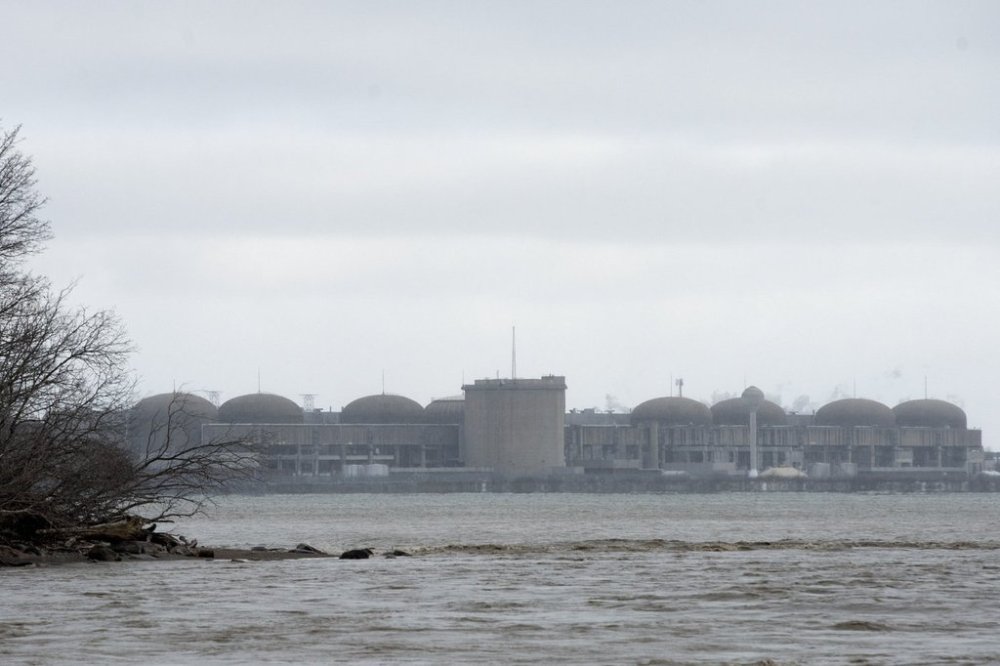‘Start their life over’: Alberta county divided after vote over planned nuclear plant
Advertisement
Read this article for free:
or
Already have an account? Log in here »
We need your support!
Local journalism needs your support!
As we navigate through unprecedented times, our journalists are working harder than ever to bring you the latest local updates to keep you safe and informed.
Now, more than ever, we need your support.
Starting at $15.99 plus taxes every four weeks you can access your Brandon Sun online and full access to all content as it appears on our website.
Subscribe Nowor call circulation directly at (204) 727-0527.
Your pledge helps to ensure we provide the news that matters most to your community!
To continue reading, please subscribe:
Add Brandon Sun access to your Free Press subscription for only an additional
$1 for the first 4 weeks*
*Your next subscription payment will increase by $1.00 and you will be charged $20.00 plus GST for four weeks. After four weeks, your payment will increase to $24.00 plus GST every four weeks.
Read unlimited articles for free today:
or
Already have an account? Log in here »
Amid the sprawling canola fields, white spruce and jack pine trees, fireweed and goldenrods of northern Alberta, Pat McNamara is having a case of nuclear déjà vu.
Two decades ago, he lived in Port Hope, Ont., northeast of Toronto, in a community dealing with decades of nuclear ground contamination, including at his own daughter’s schoolyard.
He has since moved to the County of Northern Lights, halfway between Edmonton and the Northwest Territories.

When he learned earlier this year that residents, notably farmers, hadn’t heard about a proposed nuclear plant for the area — similar to one first proposed 15 years ago — he wanted to spread the word that when things go wrong, the damage is generational.
“These people are building up those properties and those farms to hand down to their kids and grandkids,” McNamara said in an interview. “They’re not going to be able to do that.”
While he got word to the public, his Northern Action Alliance pushed for the county’s council to hold a vote.
His efforts succeeded last month when a non-binding plebiscite showed more than half of voters opposed the proposal for a two-towered plant, the first of its kind in Alberta, capable of powering 4.8 million homes.
A roughly equal number of voters also said they wish to learn more about the pros and cons.
Like much of Western Canada, the county was built by sweat-stained farmers, dirt-crusted lumberjacks and oil-rig roughnecks.
But the region’s mighty Peace River, pumping out billions of cubic metres of water into a sprawling drainage basin, makes it an ideal source for the massive amounts of water needed by nuclear plants.
That presents an economic opportunity that shouldn’t be dismissed, says county reeve Terry Ungarian.
“(People) have come to hear all of the bad things that possibly could go wrong and they’re not looking at the whole industry more objectively,” Ungarian said in an interview.
“With all of the data centres, with electrification of vehicles and the population growth … there’s going to be a huge demand for electricity. This is probably a very good alternative to look to.”
The company behind the project, Energy Alberta, says it respects concerns like McNamara’s. In August, it put the project on regulatory pause pending further consultations.
On its website, the company touts nuclear as a clean, reliable electricity source providing low-carbon power in hundreds of reactors in dozens of countries.
Energy Alberta CEO Scott Henuset, in a recent statement, said the company is eager to hear from those with questions.
The overall idea itself is a bit of a throwback.
Ontario-based Bruce Power, parent company of Energy Alberta, proposed a similar project for the area in 2008, only for it to be cancelled after residents argued its benefits weren’t worth the safety risks.
As it stands, most of Alberta’s power comes from natural gas, but Premier Danielle Smith’s government has formed a panel to review the pros and cons of nuclear as it seeks to attract new sources of power for projects like data centres.
But the answer isn’t coming soon. Alberta Utilities Minister Nathan Neudorf has said if there’s an appetite for nuclear, it could be a decade before a plant comes to fruition, saying in a statement a recent survey “will inform future engagement activities.”
David Pickup with the Pembina Institute, a clean energy think tank, said nuclear has positive attributes, but it might not be the way to go in 2025, especially given Canada’s high cost of living.
Other renewable energy sources — such as solar and wind — are significantly cheaper and take less time to build, he said. A nuclear plant typically takes about 15 years, but a wind, solar or battery plant takes less than three.
“Nuclear can work, but it has some potentially big drawbacks,” he said. “It’s tough to see how nuclear fits into those pieces in Alberta.”
This report by The Canadian Press was first published Nov. 15, 2025.
